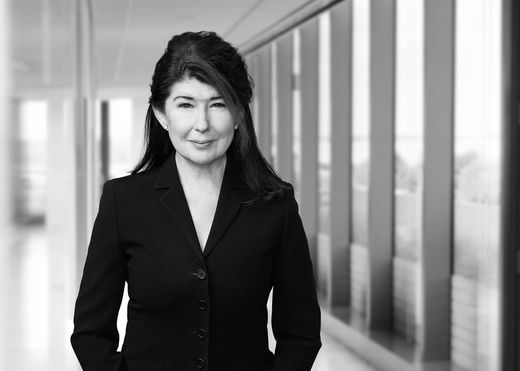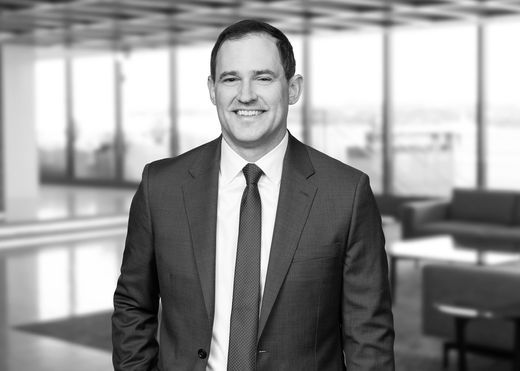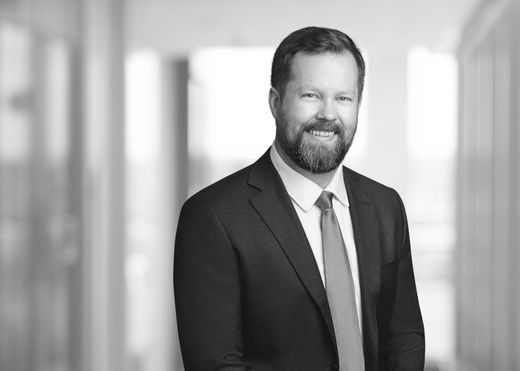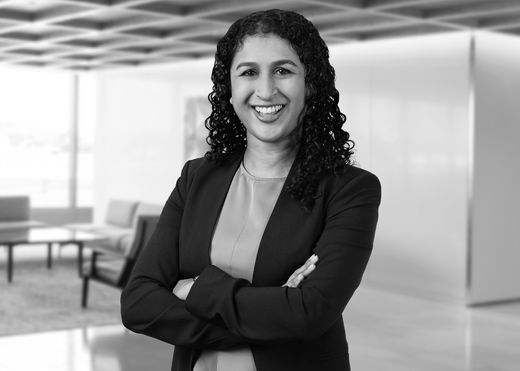Senate Commerce Committee Focuses on Broadband, Auction Authority and National Security at Trusty Confirmation Hearing

- On April 9, the U.S. Senate Committee on Commerce, Science, and Transportation held a confirmation hearing for Olivia Trusty, nominee for the open Republican FCC Commissioner seat.
- The confirmation hearing covered a range of high-priority telecommunications issues, such as broadband subsidy programs, spectrum auction authority, investigation of broadcasters, federal use of spectrum and the Universal Service Fund.
Overview
Olivia Trusty, nominee for the open Republican Federal Communications Commission (FCC or Commission) Commissioner position, appeared before the U.S. Senate Committee on Commerce, Science, and Transportation. Trusty has significant telecommunications experience on Capitol Hill and is a longtime protégé of Sen. Roger Wicker (R-MS). She is the Republican staff lead for the Senate Armed Services Committee, working with the Cybersecurity Subcommittee, where she has worked on issues related to spectrum allocated to military and national security uses. She was also a policy director for the Senate Commerce Committee, and specifically worked with the Communications, Media, and Broadband Subcommittee. Additionally, she was previously a legislative assistant to Sen. Wicker, focusing on matters related to communications, technology, innovation and the internet.
The hearing, presided over by Committee Chairman Sen. Ted Cruz (R-TX) and Ranking Member Sen. Maria Cantwell (D-WA), highlighted a range of issues such as broadband access and affordability, military use of federal spectrum, spectrum auction authority, the current challenges with the Universal Service Fund (USF), investigations by the current Commission into broadcast entities and cooperation regarding international telecommunications standards. Trusty, in her opening remarks, detailed her main priorities if confirmed as: (1) working with Congress and the White House to expand access to high-speed internet for all Americans; (2) protecting consumers from illegal robocalls; (3) strengthening the security of domestic telecommunications networks; and (4) restoring U.S. leadership in technological development for communications technologies.
Broadband Subsidy Programs and the Universal Service Fund
Broadband subsidy programs were top of mind for many senators. Sen. Wicker kicked things off by querying Trusty regarding the Proper Leadership to Align Networks (PLAN) for Broadband Act and her views on better coordination of federal broadband subsidy programs. Trusty affirmed her commitment to agency coordination, stating that “interagency coordination is crucial for closing the digital divide” and that coordination efforts are an “opportunity to streamline, coordinate, and coalesce” subsidy programs to “close the digital divide.”
Sen. Jerry Moran (R-KS) asked Trusty about the risks of “over-building” broadband infrastructure if the FCC authorized broadband deployment funding while projects funded by the Broadband Equity, Access, and Deployment (BEAD) program were also being implemented. Trusty agreed that there should not be duplication of funding and that the FCC and National Telecommunications and Information Administration (NTIA) should be in constant communication to avoid duplicative efforts.
Sen. Cantwell asked Trusty about her views on other barriers to broadband access. Trusty, citing broadband “affordability and adoption” as one of her priorities, spoke about removing regulatory barriers to broadband deployment and reducing the cost of broadband access.
Sen. Deb Fischer (R-NE) asked Trusty about her views on USF and its future, to which Trusty responded that universal service is the “cornerstone of the FCC’s mission” and that it is important for the FCC to work with Congress and other stakeholders to determine the best course forward for the program. Sen. Amy Klobuchar (D-MN) brought up modernization of USF, and asked Trusty for her ideas on this topic. Trusty stated that she would work with relevant stakeholders, including private sector stakeholders, to determine possible options for the program. Klobuchar and Trusty also discussed improving the FCC’s broadband mapping initiative, with Trusty offering ideas such as working more closely with private sector stakeholders to improve the accuracy of the Commission’s broadband maps. In response to Sen. Cantwell regarding the importance of broadband maps, Trusty indicated that accurate maps are foundational to closing the digital divide.
Sen. Marsha Blackburn (R-TN) asked specifically about Trusty’s views on USF reform or replacement. While Trusty reaffirmed her view that USF is foundational to the FCC’s mission, she stated that there could be reforms to the distribution and contribution processes; implementation of performance requirements; better oversight of eligibility criteria; and more scrutiny over the use of awarded funding.
Sen. Ed Markey (D-MA) referenced his prior work in the Senate on the FCC’s E-Rate program, which provides universal service funding to schools and libraries, and asked Trusty if the program has been successful. Trusty responded that the program had been successful. Sen. Markey asked for Trusty’s views on having access to broadband at home, and USF funding generally. Trusty responded positively on both fronts, asserting that having access to broadband at home, at school and everywhere in the United States is important.
Auction Authority and Spectrum Sharing
Sen. Moran asked Trusty about her views on the FCC’s now-expired spectrum auction authority. Trusty indicated that auction authority is a “catalyst to investment and innovation” especially for expanding broadband deployment.
Sen. Blackburn asked about midband spectrum that the senator believes is held by federal agencies and is currently not being used intensively. Trusty noted that this spectrum is incredibly important to the United States’ economic growth and national security, and that reallocating this spectrum for commercial use and renewing auction authority would support economic growth and innovation. Sen. Blackburn also asked if NTIA could conduct an inventory of the “fallow” spectrum. Trusty agreed that an inventory could be useful, but there would be some challenges especially given the national security considerations for some of the spectrum that would need to be catalogued.
Sen. Cruz, underlining the FCC’s loss of auction authority, asked Trusty if Congress should restore the FCC’s auction authority with a clear pipeline of midband spectrum. Trusty agreed, citing the balance of economic and national security priorities and the huge economic benefits, such as job creation, that restored auction authority with a spectrum pipeline could bring. Trusty also stated that auction authority is foundational to U.S. leadership in advancing global technologies.
Sen. Gary Peters (D-MI) discussed spectrum in the 5.9 GHz band, which is allocated for automobile safety measures such as Cellular Vehicle-to-Everything technology. Sen. Peters indicated that the FCC recently reallocated portions of this band for other purposes, a reallocation which he believes could reduce roadway safety. Sen. Peters asked Trusty for her commitment to ensuring this band is not further repurposed for other use cases, to which Trusty responded that her “responsibility is to put spectrum to its highest and best use” when thinking about changes to band allocations.
National Security
Sen. Fischer asked Trusty what she thinks the appropriate role is for the FCC’s interactions with the Department of Defense (DOD) regarding spectrum allocated to military and national security uses. Trusty, noting that “spectrum is the lifeblood of wireless communications,” committed to trying to find opportunities to repurpose spectrum allocated for federal use to commercial use. Trusty cited the importance of accommodating both national security and economic considerations in making these decisions. Sen. Cruz noted the DOD’s refusal to coordinate around spectrum allocated for national security purposes, and asked Trusty if this impacts the United States’ ability to defend itself globally where other countries have reallocated such spectrum for use by the commercial sector. Trusty stated that she believes “there is an opportunity to move forward on spectrum policy that protects both our national security and advances our economic interests,” and mentioned conducting classified briefings regarding potentially available spectrum that includes multiple stakeholders to ensure progress on this issue.
Sen. Cantwell similarly referred to the DOD and how the FCC and Congress could approach the issue of spectrum sharing between federal and commercial uses. Trusty responded that the FCC and DOD could work together with other agencies to conduct more studies, and potentially hire more technical personnel to help address interference issues. Trusty again alluded to the difficulty of conducting this research in a classified and secure environment, but also confirmed to Sen. Cantwell that she supports investment in dynamic spectrum sharing technologies.
Sen. Lisa Blunt-Rochester focused on national security through the lens of 6G competition and global rollout, asking Trusty about the FCC’s role in ensuring the 6G rollout is smooth and secure. Trusty cited the recent creation of the FCC’s Council for National Security as one mechanism for the FCC to evaluate potential options to prevent malicious foreign penetration of United States networks. Trusty also advocated for strengthening the domestic supply chain to prevent overreliance on one or two suppliers. Trusty also made a commitment to prioritize cybersecurity for 6G networks, stating that there are “tremendous use cases” for artificial intelligence to play a role in protecting such networks. Sen. Cruz also called attention to the negative national security consequences if the United States falls behind countries like China in 6G deployment of telecommunications infrastructure. Trusty concurred, stating that this would be “devastating to our economic and national security interests.”
The hearing also covered topics such as coordination for international consensus building at forums like the World Radiocommunications Conference. Sen. Fischer asked Trusty about building unified positions at these conferences to boost the United States’ position globally. Trusty stated that a unified position is necessary to give the United States time and space to develop coalitions with allies, and preempt those attempting to “undermine U.S. values.”
Sen. Todd Young (R-IN) asked Trusty about how the FCC plans to protect undersea or submarine cable infrastructure. Trusty, noting that these cables are an important part of our critical infrastructure, indicated that the FCC can promote more transparency in foreign ownership of undersea cables, and that the United States should lead more undersea cable projects. Trusty also highlighted that the diversification of undersea cable routes could help prevent a single point of failure and strengthen disaster recovery plans.
Broadcast, Media and Political Implications of Recent FCC Actions
Following Sen. Cantwell’s opening statement warning about the dangerous precedent set by recent administration actions to remove commissioners at independent federal agencies, Sen. Ben Ray Luján (D-NM) questioned Trusty about recent actions taken by President Trump and FCC Chairman Brendan Carr. Trusty answered that she is committed to “upholding and enforcing the law.” Sen. Luján also asked about recent investigations by Chairman Carr into national broadcast networks for purportedly political reasons. Trusty stated that she would focus on the facts, the FCC precedent, the public interest and the law. When directly asked by Sen. Luján on whether the FCC should be weaponized against media organizations, Trusty stated that it should not.
Sen. Markey, noting the “attacks” against broadcasters by Chairman Carr, asked Trusty whether she agrees that the FCC should not open investigations for political purposes. Trusty agreed. Sen. Markey also asked Trusty if she would cast votes in support of potential FCC actions that could violate the First Amendment, to which Trusty stated that she firmly believes in the First Amendment and would not do anything to violate it.
Sen. Cantwell and Sen. Moran both asked Trusty about the carriage of local news content in the light of recent evolution in broadcast and video services. Trusty stated that it is “incumbent upon the FCC to work with Congress to ensure we have a modern regulatory framework that reflects the realities of today’s media marketplace” and help broadcasters better compete with technology companies.
Consumer Protection
Some senators highlighted the increase in robocalls as a growing issue for U.S. consumers. Sen. Blunt-Rochester asked Trusty her opinion on recent FCC actions to target robocalls generated through the use of artificial intelligence, which Trusty agreed were helpful for consumer protection. Sen. Bernie Moreno (R-OH) called out the “scourge of robocallers” and resulting consumer scams, and asked Trusty if there are advanced technologies that could put an end to this practice. Trusty replied that the FCC could benefit from “stronger enforcement authorities and penalties” to go after robocalls, and that there should be more proactive call blocking using tools like artificial intelligence.
Takeaways
Though it is not yet clear how the votes will tally, Trusty seems to have received a fairly positive reception from both Republican and Democratic members of the Senate Commerce Committee. This contrasts with the more difficult time Arielle Roth, nominee for the lead role at NTIA, had with the Committee. Roth was ultimately voted favorably out of the Senate Commerce Committee in spite of heavy Democratic opposition.
If confirmed, Trusty will join Commissioner Nathan Simington and Chairman Carr, Republicans, and Commissioner Anna Gomez, Democrat. Commissioner Geoffrey Starks, another Democrat on the Commission, plans to resign later this spring. Trusty’s confirmation therefore would give Carr a Republican majority on the Commission and more leeway to pursue a conservative agenda via Commission-level actions.
Akin continues to monitor this space for any new developments. Please do not hesitate to reach out if you have any questions.








